|


The educational
value of a biased show
This show
deliberately portrays society from a one-sided worm's eye view, from the
position of those worst off: a society is no better than it is for the
least of its members! Since this view is contrary to the one most
Americans have been brought up with - judging a society on the
possibility for success - it tends to strike up enormous defense
mechanisms.
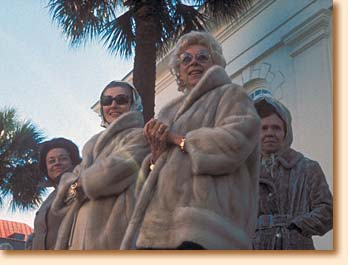
Confronting
our middle class biases
These defenses
(and the feelings they conjure) may especially become overwhelming for
white Americans, who are often mastering the art of rationalizing
poverty and racism to a state of perfection - and they might fight back.
This is a
healthy reaction since you are going through a form of oppression during
the show, but don't let these defenses become stumbling blocks which
might close you off from an invaluable and long-lasting experience.
When black
people try to express feelings about their oppression, they often make a
statement such as "White society is solely responsible for the ghettos
(period!)".
What whites
always do is to change that period to a comma followed by a "Yes, but" -
rationalization: "Yes, but what about crime? What about people who don't
want to work?" And so they immediately try to water down the angry
statement of a hurt person.
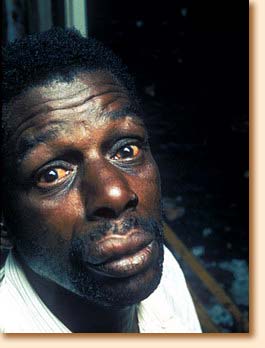
The "show"
is oppression, not entertainment!
In American
Pictures you will not be allowed to do that. You will go through an
incessant and seemingly endless bombardment of statements of the type
blacks have always tried to express to us, but your defenses will have
not outlet. Thus you are being oppressed!
This process
combined with the length will create emotions in you not unlike the ones
blacks have, working and living every day in white institutions. At the
end of the show you will be presented with a chart listing those
emotions.
All of them are
unconstructive in the short run. But experiencing how paralyzed and
useless you feel after such a mini-form of reverse oppression can make
it easier for you to understand why it is so difficult to succeed for
those whom we are confining through our racism to such emotions from
earliest childhood.
And vice versa:
you may even feel how such emotions can lead to seemingly irrational and
self-defeating behavior and thus better be able to understand those
aspects of black (American) behavior which constantly fuels our racism.
Understanding
how we are all victims in such a reciprocal system and how it is
threatening many of the best values in our society could in the long run
lead to some kind of action, which is not based on guilt, but genuine
solidarity and self-interest.
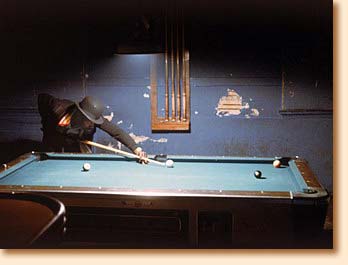
Shortcomings for a black audience
For blacks the
show is not automatically constructive either. To demonstrate how
devastating racism is, it concentrates on that segment of the population
most visibly defeated by it.
Many blacks are
effectively trying to put a shield around themselves to avoid being
infected by that racism, and the show will therefore create a lot of
pain, which at times might be overwhelming, just as it can lead to
counter-productive feelings of victimization.
But for many
blacks the show has been a positive experience in terms of better
understanding the impact of internalized racism and various forms of
self-denial.
Shortcomings
for a European audience
For Europeans
from more homogeneous societies the show is perhaps the most
problematic, since the seeming distance to the problems easily leads to
a patronizing attitude rather than genuine solidarity - a form of racism
American blacks are very sensitive to.
Some might even
react with primitive feelings of self-righteousness and national
chauvinism - and thus disclose that they are totally out of touch with
the much more inexcusable forms of racism (that is to say: with
non-historical roots) we experience in Europe.
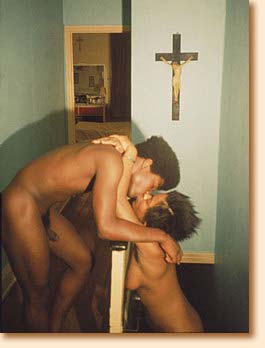
Cultural
biases
American
Pictures reflects in its cultural views my Danish background and
thinking, some of which may seem provocative in other societies. The
most obvious stumbling block for British and American spectators seem to
be the nude and sex photos, which in Anglo-American culture often are
interpreted as "dirty," "sexist" or in the context of this show even
"racist."
But remember
that I come from a society where our inner city parks and family beaches
are packed with nudes and where the tendency on TV is to censure out
violence, but not nude and sex scenes which actually might be just as
healthy and natural as censuring it the other way around.
I don't think I
should censure these more Danish views out of the show in America since
the very value of it is that it is an outsiders views. And in a society
where black beauty is held in such low esteem these scenes might serve
an important purpose.
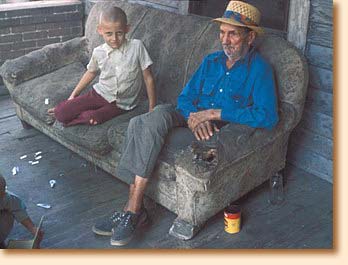
Comparing
with welfare states
In our search
for solutions to racism and poverty I propose that we separate the two
in our discussion and limit it to what can be done within the framework
of capitalism. I am myself shaped in my views by the European concept of
the welfare state and introduce that as a possible solution to
institutionalized poverty and insecurity (Note: not racism!)
I am aware,
however, that most Americans have very little knowledge about it or
wrongly associate it with "hand outs from above," "destroying people's
incentive" or "just another ineffective Great Society a la the 60's."
But my question is: can a society afford NOT to have a welfare state
with equal opportunities for everyone?
Anyway, I hope
the show - in spite of its shortcomings - will bring us all together in
a creative debate about the problems.
Jacob Holdt
| 